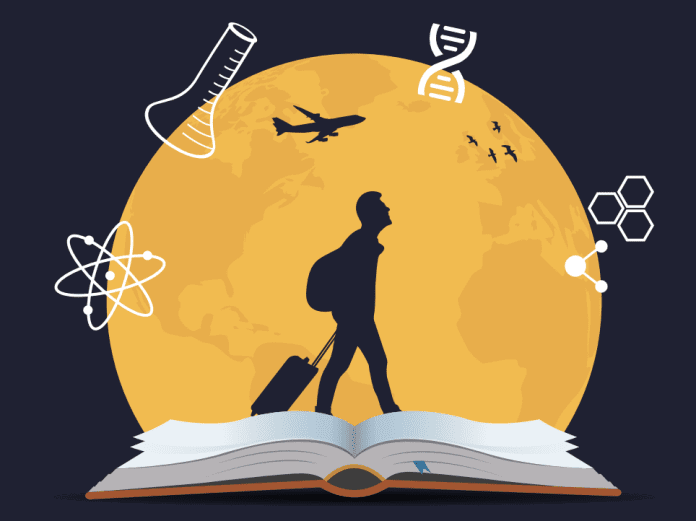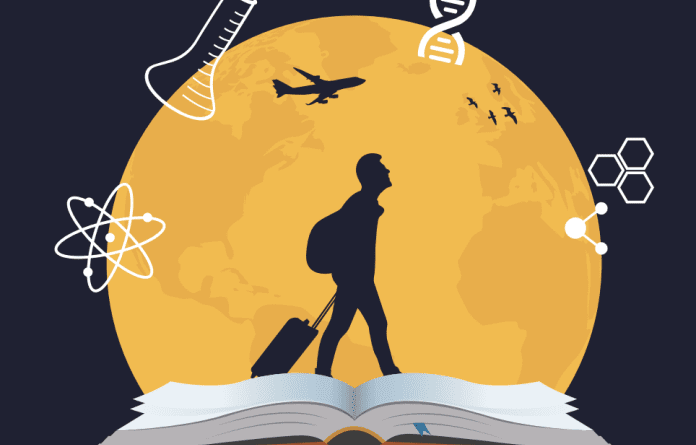Science Transcends Limits


Research Relations Face Geopolitical Obstacles
It is driven by political tension and rising sentiments against diversity and inclusion efforts, the landscape of international research is changing dramatically.
The changes are most visible in scientific cooperation between the US and China, where political tensions and the COVID-19 pandemic have led to a major slowdown in joint research efforts. This approach is troubling, experts in the scientific community say, because it greatly hinders the ability of researchers to tackle global problems such as climate change, epidemics and food security in a collaborative manner.
A recent analysis by Springer Nature – a German academic publishing company – highlights this decline in research collaborations. The study, using data from the research analysis tool InCites, revealed that in 2022, the total number of papers published by Chinese and international researchers has decreased for the first time since 2013.
This decline is largely due to a sharp decline in joint publications with US researchers, a trend that has been exacerbated by political actions, including the United States Department of Justice’s China Initiative, created under the administration of Trump. Although this initiative ends in 2022, experts note that it has left a level of fear and caution among researchers, especially those of Chinese descent, still hindering the renewal of cooperation.
Furthermore, a survey of more than 700 universities worldwide found that political tensions have led to a sharp decline in research links around the world, particularly in Europe and North America. More than half of the universities in these areas reported banning the transactions due to new government regulations or of their own accord. Concerns about the security of knowledge, particularly in relation to China, have driven these changes, and universities are taking drastic measures to protect information.
Despite these challenges, some international research efforts persist, driven largely by students and faculty from South Asia. According to research by HolonIQ – a global market intelligence platform – US foreign enrollment could nearly double from about 1.3 million students to an estimated 1 million 2.8 by 2034, with India playing a key role. Researchers note that this growth highlights the importance of maintaining open international research groups and promoting a diverse academic environment.
Recognizing the importance of international collaboration in the advancement of scientific discovery, the Association of American Universities (AAU) recently established a Task Force on Expanding United States-India University Partnerships, which aims to identify important areas of bilateral cooperation. By leveraging existing programs such as the selection of two teams and student exchanges, the AAU hopes to expand future efforts. This includes the proposal of IndoU.S. Global Challenges Institute – a virtual network of Indian and US universities promoting collaborative research.
“[The institute] will facilitate high-level research collaborations in areas such as semiconductor technology and manufacturing, sustainable agriculture and food security, sustainable energy and the environment, health equity and pandemic preparedness, and critical science emerging,” AAU President Barbara Snyder, JD, said in announcing the task force at the end of 2023.
Although India will play a major role in the growth of the United States’ international scientific cooperation, AAU and other institutions are also working to establish research collaborations with many other countries. For example, the goal of the University Partnership for Workforce Advancement and Research & Development in Semiconductors (UPWARDS) for the Future project, led by the University of Washington (UW), is to innovate technology of semiconductor and chip and developing the best specialist in the US. workers within the industry through international cooperation.
Announced at the G7 summit held in Japan in May 2023, UPWARDS for the Future brings together researchers and academics from the US and Japan, with significant investment from major Micron Technology companies. and Tokyo Electron Limited, as well as the National Science Foundation and various universities. There is more than $60 million in funding for this five-year project, highlighting its critical importance.
UPWARDS for the Future prioritizes expanding the STEM talent pipeline to include underrepresented groups in the semiconductor industry. The first cohort of UPWARDS professors, all women, will participate in high-impact research projects and industry-led mentoring programs. The effort is part of the UW’s broader mission to close the STEM equity gap and create pathways for underrepresented groups, including rural and ethnic communities.
“We are honored to be a part of this innovative collaboration and to lead the NSF grant for UPWARDS,” UW College of Engineering Dean Nancy Albritton, PhD, said in a news release. “As a leading engineering educator in Washington state and a leader in chip engineering and workforce development for the global innovation economy, it is an honor to work with academic and industry partners to drive progress in this important field of science.
Although this effort is an example of the potential of international cooperation, the widespread levels of political tension and anti-diversity sentiment remain a major obstacle. Experts confirm that restrictive policies and the constant state of fear caused by regional conflicts can drive talent away from certain countries and fields, leading to “brainstorming” and the loss of valuable talent. . This can result in countries prioritizing domestic interests over international cooperation, making scientific research national.
As initiatives such as the AAU and UPWARDS for the Future partnerships strive to innovate and exchange research, achievements in this area are important to highlight, promote and support while combating xenophobia and nationalism. . Balancing national security issues with the need for global cooperation will be essential for the US to continue to advance technology and scientific research around the world. ●
#Science #Transcends #Limits

